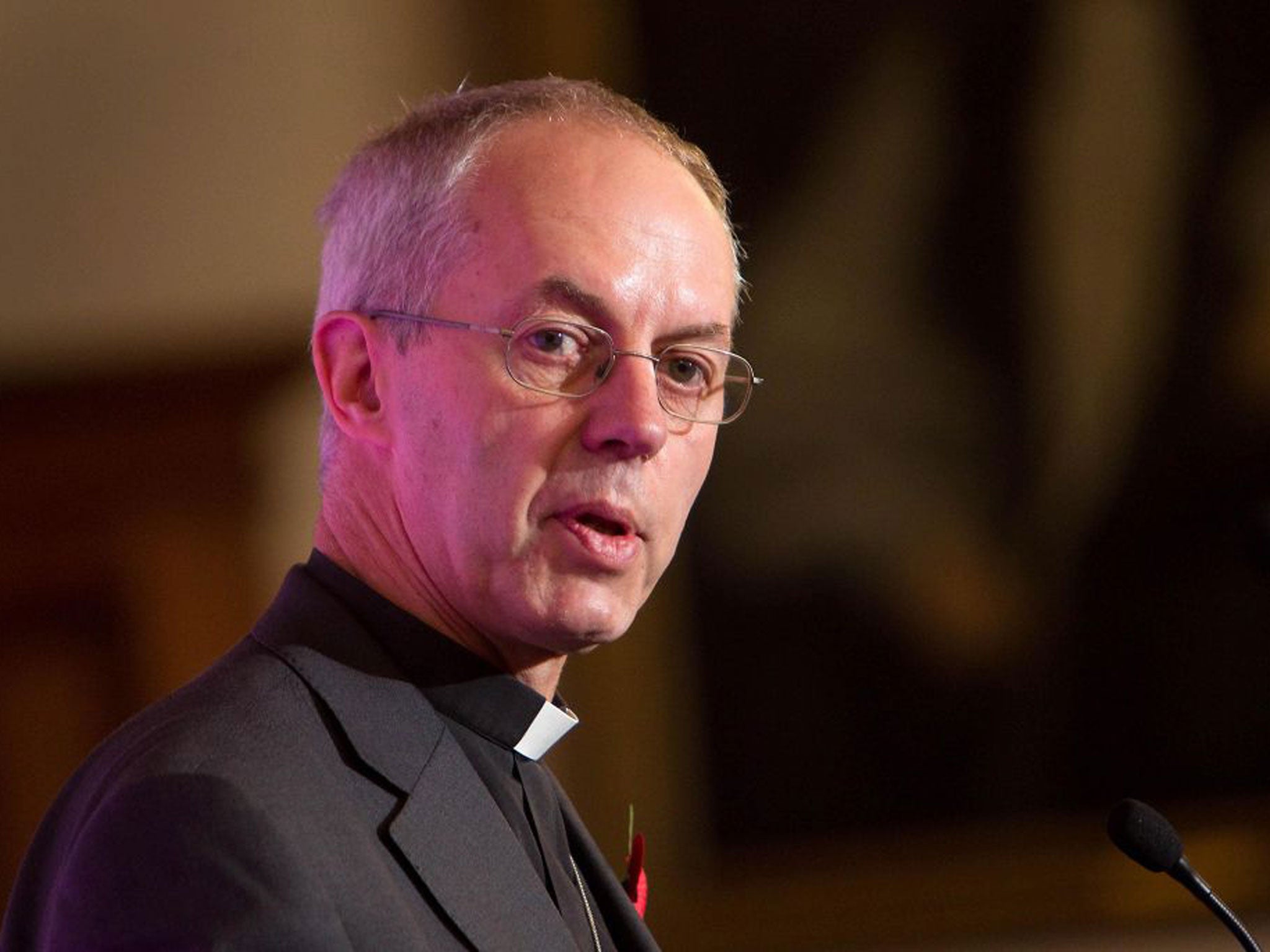Archbishop of Canterbury Justin Welby attacks The City's 'culture of entitlement'
Asked about his political pronouncements, Welby said: 'sometimes feathers get ruffled'

The Archbishop of Canterbury has criticised what he sees as a "culture of entitlement" in The City.
Speaking to the Financial Times, the Rt Rev Justin Welby also suggested "serious consideration" be given to the idea of setting up a professional banking body to regulate standards.
The Archbishop, a former oil industry executive and now a member of the cross-party Banking Standards Commission, said it would take something “very major” to restore the nation's economic confidence.
Welby acknowledged that standards in London's financial hub are higher than in the past, but said: “In banking, in particular, and in the City of London, a culture of entitlement has affected a number of areas – not universally by any means – in which it seemed to disconnect from what people saw as reasonable in the rest of the world.”
“Part of an ethical approach is transparency and reality about recognising where you are. The lesson from Japan is if you’re going to bite the bullet, it’s better to bite it sooner rather than later.”
His views are thought to enjoy support on the commission, which is engaged in a wide-ranging debate on the best ways to improve practices in The City. The Chancellor George Osborne has promised to incorporate proposals from the commission into draft legislation.
Rev Welby said: “Banks are incredibly complicated things. The idea that people can hold hugely responsible positions in them without any kind of formal training seems to a number of us quite surprising.”
The Archbishop also repeated his comments from last week that Britain is in an economic depression and from which it could take a generation to recover.
Asked on Radio 4’s The Week in Westminster whether he minded ruffling a few feathers, he said: “I don’t know if it annoyed people in Number 10.
"They haven’t said anything here. I mean they probably would have preferred it not said.
“Historically depressions have been recognised as lengthy periods in which the economy did not get back to its previous level of activity before a recession set in. So 1929 to 1932 is the great example. There was a big one towards the end of the 19th century.
“We are still significantly below where we were in 2007 in terms of economic activity, of GDP, and that’s quite a long time of being below.
“Now, I’m not pointing any fingers at anyone in particular and saying it’s so-and-so’s fault or so-and-so’s fault, it’s simply a measurable fact coming from the national statistics.
“It’s very much less noticeable in London, I have to say, than in the north east where I was living previously. Do I mind ruffling feathers? I think I do mind ruffling feathers, I don’t like ruffling feathers – but sometimes feathers get ruffled. I mean that’s life.”
In his interview the Archbishop was asked whether he saw it as part of his mission to try to inject more morality into British financial life.
He said: “My key mission is to lead the church in worshipping Jesus Christ and encouraging people to believe in him and follow him. That’s my mission.
“The Christian gospel has always had strong social implications and one of them is around the common good and it’s one of the key areas in which the Church of England focuses, and so issues of how the City of London, which is so important and so full of very gifted people, how that behaves in relation to the common good is very key, not to the whole thing that I'm about or the church is about, but to how we express the implications of that in day to day life.”
Join our commenting forum
Join thought-provoking conversations, follow other Independent readers and see their replies
Comments